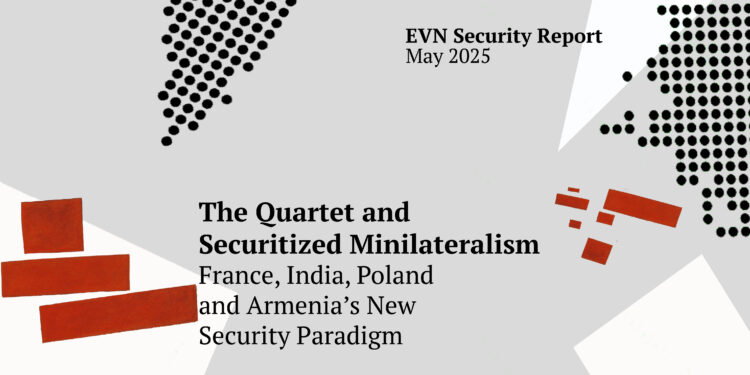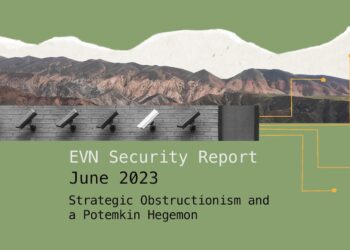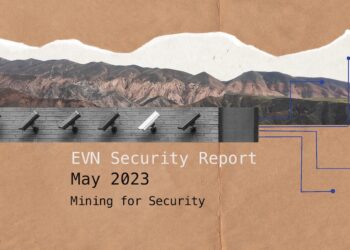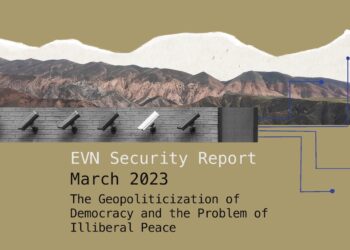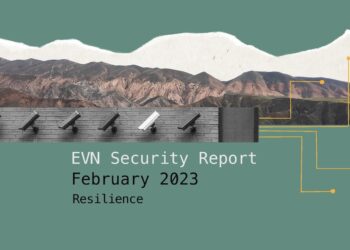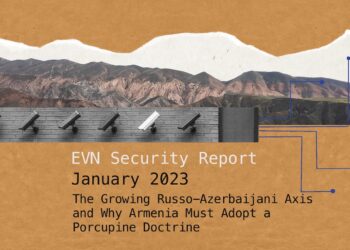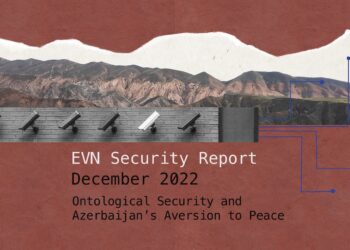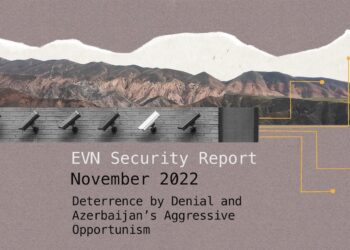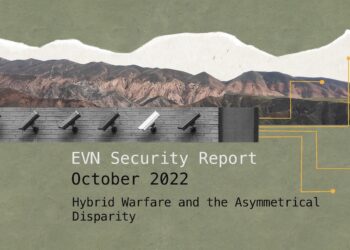EVN Security Report
EVN Security Report: July 2023
Critical self-reflection is necessary as Armenia overhauls its intelligence infrastructure. For national security strategy to be concrete, substantive and operationalizable, it requires strategic intelligence. Nerses Kopalyan explains.
EVN Security Report: June 2023
In this security report, scenario planning is fused with contingency planning to prepare courses of actions and outcomes that may address unexpected situations and mitigate significant impact to Armenia due to the ongoing Russia-Ukraine conflict and its effect upon Russia’s domestic political order.
EVN Security Report: May 2023
Armenia’s vast mines have never been part of its security architecture, nor has the potential securitization of this sector ever been considered a fundamental cornerstone of building alliances or strategic partnerships. Mining-for-security should not be qualified as a political act, but rather, a fundamental security act, Nerses Kopalyan writes.
EVN Security Report: April 2023
Russia’s refusal to either enforce or impartially implement the terms of the November 9 tripartite statement that ended the 2020 Artsakh War has generated a growing cleavage between Armenia and Russia, revealing Moscow’s preference for frozen conflict persistence.
EVN Security Report: March 2023
The region’s security arrangement remains in flux as Azerbaijan amplified its rhetorical aggression and engaged in expansive troop movements and build-up in border areas. Greater Western involvement has deepened the alliance between Azerbaijan and Russia. While Moscow and Baku have established a united front against the West’s presence in the region, Armenia has proceeded to reconfigure its strategic interests, advancing its democracy narrative, while aligning its preferences to the resolution of the conflict with the Western-led stabilization efforts.
EVN Security Report: February 2023
Armenia's precarious security situation is compounded by its underdeveloped institutions and infirm infrastructure. For the February security briefing, Nerses Kopalyan writes that in this context, the entirety of Armenia’s social and governmental approach must revolve around building resilience.
EVN Security Report: January 2023
Taking into consideration the security context in January and guided by a strategy of deterrence-by-denial, Armenia must develop a “porcupine doctrine” to deter Azerbaijan’s objectives and the destabilizing designs of the Aliyev regime.
EVN Security Report: December 2022
The security context in December showed that regardless of negotiations or the general contours of a potential peace treaty, actual and sustainable peace with the Aliyev Government will remain elusive. This month’s security report introduces the concept of ontological security.
EVN Security Report: November 2022
The security context for the month of November demonstrates observable decline for Armenia as Azerbaijan intensified and amplified its hybrid warfare activities, attempting to neutralize Armenia’s growing attempts at the diplomatization of its deterrence capabilities.
EVN Security Report: October 2022
The security context for the month of October can be better understood as the changing configuration between Armenia’s implementation of its diplomatization-of-security doctrine against Azerbaijan’s multi-tiered hybrid warfare doctrine.

